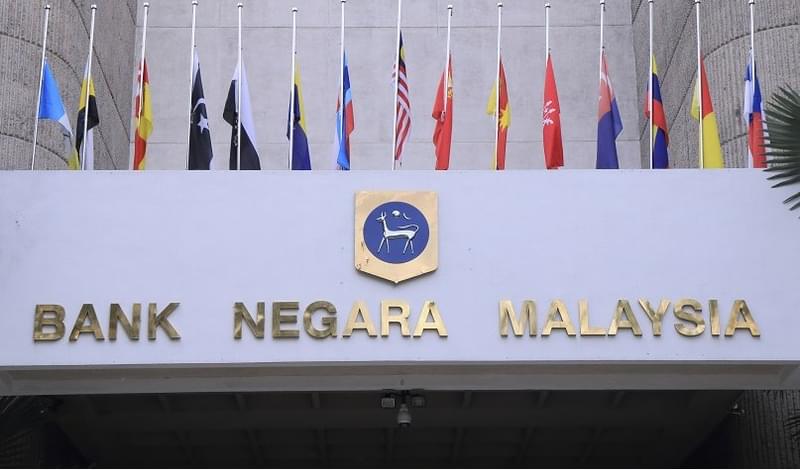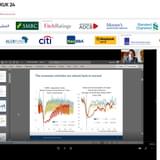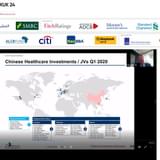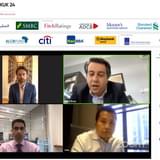Last week, Bank Negara Malaysia’s Assistant Governor Adnan Zaylani said recent offshore market activities had caused significant market volatility and adversely affected onshore ringgit trading. This week, the Bank issued a statement asking foreign banks with local subsidiaries to secure permission from their onshore counterparts and the Central Bank before executing offshore FX trades involving the ringgit, including FX derivatives placed in offshore non-deliverable forward (NDF) markets.
“The Bank is taking measures to reinforce existing rules that have been in place to prohibit facilitation of ringgit NDF. The Bank would like to remind all market participants to observe compliance with the existing FEA rules and the Malaysian licensed banks must avert from facilitating any foreign exchange (FX) transaction that could be related to offshore ringgit NDF market activities,” Bank Negara Malaysia said in a statement published November 13.
“The public is advised to approach Malaysia licensed banks for all foreign exchange requirements. Foreign fund and asset managers should contact Malaysian licensed banks for advices and execution of any foreign exchange transactions. All Malaysian licensed banks will continue to facilitate customers’ request for foreign exchange services subject to compliance to FEA.”
“Ringgit remains a non-internationalised currency, thus any offshore trading of ringgit such as ringgit non-deliverable forward (NDF) is not recognized,” it said.
There are 21 foreign banks with onshore subsidiaries in Malaysia, which have the capability to play in the onshore and offshore ringgit markets.
“The pressure that they are trying to apply will decrease liquidity and the ability to transact in the NDF market is a not a net positive. It will ultimately reduce the scope of your ability to hedge your exposure in an efficient manner,” according to Sacha Tihanyi, Senior Emerging Markets Strategist at TD Securities.
“Assuming you can access the onshore market, that would impact you less, but having access to both the onshore and offshore market can afford you greater flexibility in terms of securing better terms; by no means is the onshore market very liquid, depending on the sizes that you might transact at.”
The Bank reiterated it was not changing its current FX policy, but analysts say some types of investors will be facing a new reporting requirement whereby fixed income-related FX transactions executed in the local market must be accompanied by an official letter certifying that it is being executed independently and does not correspond to offshore NDF FX activity.
The announcement, coupled with heightened expectations of an impending interest rate hike in the US and a steepening US Treasury yield curve, prompted further depreciation of the ringgit this week; it briefly dipped to 4.3026 on Monday before closing at 4.3985 on Thursday.
The ringgit has seen a broad depreciation since April this year, when it peaked at 3.85 to the US dollar. It briefly exceeded 4.51 to the US dollar earlier in November before settling back down to its current level.
“It’s unsurprising the Malaysian Central Bank wants to curtail ringgit weakness via these types of macroprudential measures. Ultimately, however, it is swimming against the tide. The broader thrust is a stronger US dollar, boosted by higher interest rates, and the inevitable consequence is that EM currencies will depreciate – especially for commodity producers,” said Peter Kinsella, Head of EM Economic & EM FX Research, Commerzbank AG
“At the margin, this would lead to a decrease in capital and portfolio inflows, and FDI.”
While Malaysia offers fairly open access to its equity and fixed income markets, it prohibits offshore trading of its currency and related derivatives. Many foreign fixed income investors use offshore NDFs for legitimate hedging activity, but the Central Bank’s attempt at moving all hedging activity back onshore where it can be more closely monitored has some investors worried.
“Given Malaysia’s past track record, investors are nervous about deeper capital controls,” explained Win Thin, who leads emerging market strategy at Brown Brothers Harriman in New York. In 1998, following the Asian financial crisis, authorities pegged the ringgit at 3.8 per US dollar, required investors to repatriate all ringgit held offshore back to Malaysia, and instituted a 1-year holding period for foreign investors, preventing repatriation until after that period ended.
Thin doesn’t think the government will resort to anything as cumbersome, but regardless of how warranted observers believe the new measures are, they could still hamper foreign participation in the country’s fixed income markets – which already see disproportionately large foreign participation relative to other EMs, particularly at the shorter end of the yield curve. Foreign investors hold up to 40% of outstanding bonds in Malaysia.
“By discouraging offshore hedging, the authorities may end up scaring away foreign fixed income investment altogether at a time when EM sentiment is fragile,” Thin said.
October fund flows suggest foreign fixed income investment in Malaysia had stalled. According to BBH the existing stock of foreign fixed income investment stood at around US$57bn in October, up from US$50bn at the end of 2015 but well below the peak near US$80bn in April 2013, just before the Taper Tantrum.
Malaysia has generally been an underperformer in the EM space. The yield on 10-year local currency government bonds, which has risen 60bp over the past week, is up just 1bp year-to-date, ahead of only the Philippines (96bp), Mexico (81bp), Poland (56bp), Turkey (30bp), Taiwan (17bp), Hungary (14bp), and Czech (6bp).
With the country’s markets still feeling the effects of the scandal involving indebted state fund 1Malaysia Development Berhad (1MDB) and accelerated US dollar appreciation on the horizon, the Central Bank’s recent moves could add further pressure to a market heavily participated by foreign investors.
“If you were thinking about putting money into Malaysia, it does create more regulatory regime uncertainty and give you pause at the very least,” Tihanyi concludes.









